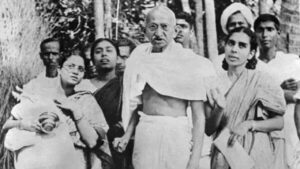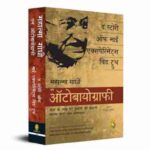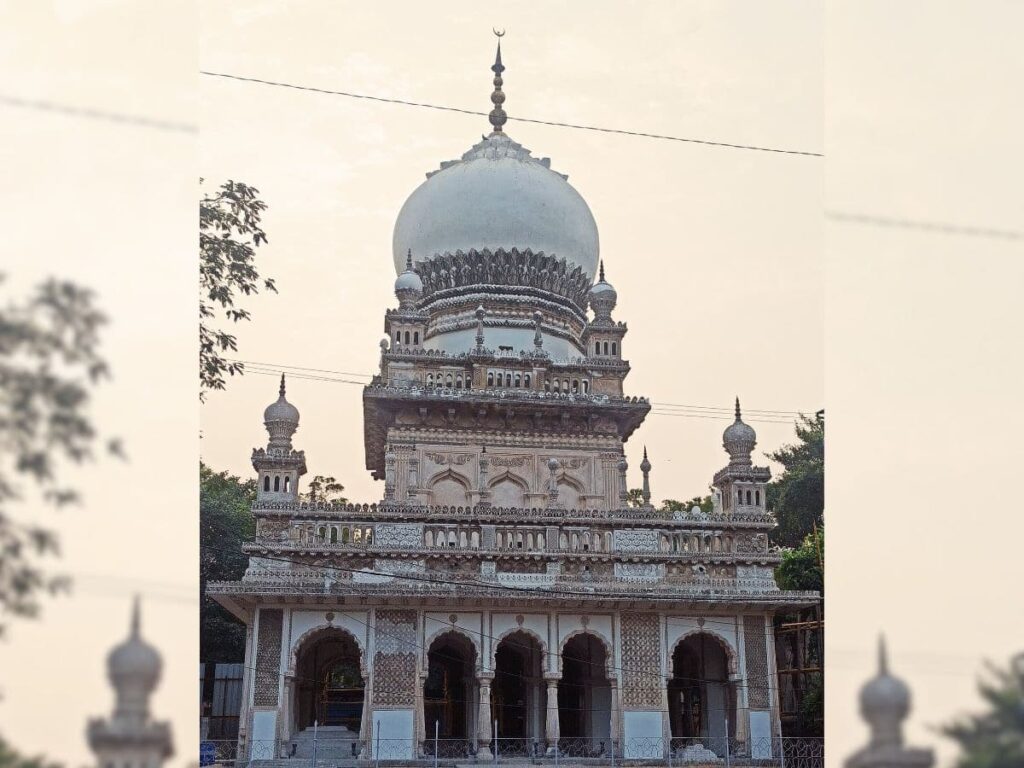Remembering Mahatma Gandhi on His Death Anniversary : A Journey of Peace and Non-Violence
Remembering Mahatma Gandhi on His Death Anniversary : Mahatma Gandhi, an iconic figure in the annals of history, is affectionately known as the “Father of the Nation” in India. Born on October 2, 1869, in the coastal town of Porbandar, Gandhi’s life journey is a testament to his unwavering commitment to peace, non-violence, and the pursuit of justice. As we mark the anniversary of his passing on January 30, 1948, it’s an opportune moment to reflect on the enduring legacy of a man who played a pivotal role in shaping the destiny of a nation and influencing global movements for social change.

Remembering Mahatma Gandhi significance as the Father of the Nation is deeply rooted in his leadership during India’s arduous struggle for independence from British colonial rule. His philosophy of non-violence, encapsulated in the concept of “Satyagraha” (truth-force), became the guiding principle for countless individuals who sought freedom through peaceful means. The impact of his teachings extended far beyond the boundaries of India, inspiring civil rights movements and leaders across the globe.
Contributions to Peace, Non-Violence, and India’s Struggle for Independence:
Gandhi’s contributions to peace and non-violence are monumental. His belief in the power of truth and love as forces to overcome injustice became the cornerstone of his leadership. In a world accustomed to aggression, Gandhi’s philosophy was revolutionary — advocating for change through moral and ethical strength rather than through force.
The Mahatma’s role in India’s struggle for independence was unparalleled. In 1915, he returned to India from South Africa, where he had already shown the efficacy of non-violent resistance in the face of discrimination. In his homeland, Gandhi began organizing farmers and urban laborers to protest against the oppressive policies of the British colonial rulers.
The Satyagraha movement, marked by non-violent protests and civil disobedience, gained momentum under Gandhi’s leadership. His famous salt march to Dandi in 1930, protesting the British monopoly on salt, became a symbol of non-violent resistance. This movement not only shook the foundations of the British Empire but also inspired similar struggles for independence and civil rights worldwide.
Remembering Mahatma Gandhi commitment to non-violence did not waver even in the face of adversity. His fasting as a form of protest, such as during the Salt Satyagraha and the Quit India Movement, showcased his unwavering resolve and stirred the conscience of the nation. India’s eventual independence in 1947 was a triumph of Gandhian principles, marking the power of peaceful resistance against colonial oppression.
As we remember Mahatma Gandhi on the anniversary of his passing, it is an occasion not only to pay homage to the architect of India’s independence but also to reflect on the timeless relevance of his teachings. His philosophy continues to inspire movements for justice, equality, and peace across the globe, making him a beacon of hope for generations to come.
Mahatma Gandhi: A Journey of Peace and Non-Violence
Early Life and Background:
Mahatma Gandhi, the epitome of non-violence and the architect of India’s freedom struggle, was born on October 2, 1869, in Porbandar, a small coastal town in Gujarat, India. His early years were marked by simplicity and humility, foreshadowing the values that would shape his life’s work.
At the tender age of 13, Gandhi entered into matrimony with Kasturba, setting the stage for a lifelong partnership that would weather the storms of both personal and national struggles. This early commitment reflected the cultural norms of the time but also marked the beginning of a journey that would see Gandhi challenging societal norms for the greater good.
Gandhi’s intellectual journey took him to London, where he pursued a degree in law at the Inner Temple. This educational pursuit was a crucial step that would equip him with the legal acumen to navigate the complexities of the British colonial legal system and ultimately advocate for India’s independence.
Years in South Africa:
In 1893, Gandhi’s trajectory took an unexpected turn when he accepted a legal position in South Africa. What was initially intended as a short stint turned into a 21-year sojourn that would profoundly shape his ideology. Gandhi’s experience in South Africa exposed him to the harsh realities of racial discrimination, sparking his initiation into non-violent resistance during the civil rights campaign.
The Mahatma’s approach was transformative; he coined the term “Satyagraha,” emphasizing the pursuit of truth and non-violence. This marked the beginning of a new chapter in his life, where he utilized peaceful protests, civil disobedience, and fasting as tools to challenge injustice. His time in South Africa laid the foundation for the principles that would later fuel India’s struggle for independence.
Return to India:
In 1915, Gandhi returned to his homeland, India. Armed with the lessons learned in South Africa, he dedicated himself to organizing farmers and urban laborers against discrimination. His efforts were not confined to political independence; Gandhi championed social justice and economic equality.
The Satyagraha and Ahimsa movements emerged as powerful tools in the fight against British colonial rule. Through non-violent resistance, Gandhi aimed not only for political liberation but also for the transformation of individuals and society. The Dandi March in 1930, protesting the British salt tax, became an iconic moment in this struggle, showcasing the potency of non-violent civil disobedience.
Philosophy of Non-Violence:
Gandhi’s philosophy of non-violence, or Ahimsa, became the guiding light of his leadership. He believed that true strength lay in compassion and moral force rather than brute force. His commitment to non-violence extended beyond political realms; Gandhi advocated for it in daily life, encouraging individuals to cultivate empathy and understanding.
This philosophy resonated globally, influencing civil rights movements in the United States led by Martin Luther King Jr. and anti-apartheid struggles in South Africa. Gandhi’s teachings became a cornerstone for peaceful activism, emphasizing that the means used to achieve a goal must align with the goal itself.
Assassination and Legacy:
Tragically, Gandhi’s commitment to non-violence did not shield him from the violence of his assassin’s bullet. On January 30, 1948, while on his way to an evening prayer meeting in Delhi, he fell victim to Nathuram Godse’s act of violence. The assassination shocked the world, but Gandhi’s legacy endured.
Mahatma Gandhi left behind a legacy that transcends borders and generations. His principles of non-violence, truth, and love continue to inspire movements for justice and human rights. His commitment to simplicity and self-discipline serves as a timeless example of how an individual’s life can become a powerful force for positive change.
Significance of Mahatma Gandhi’s Death Anniversary:
The global recognition of Mahatma Gandhi is epitomized by the United Nations designating October 2 as the International Day of Non-Violence. This day serves as a reminder of Gandhi’s enduring impact on global peace and harmony. It is not merely a commemoration but a call to action, urging individuals and nations to uphold the principles of non-violence as a path to sustainable peace.
Raising awareness about non-violence on this day is crucial for fostering unity and understanding. Gandhi’s teachings remain a beacon of hope in a world often plagued by conflict. As we observe his death anniversary, we are reminded that the pursuit of truth and non-violence is not a passive endeavor but an active commitment to building a world where justice and compassion prevail. In honoring Gandhi, we renew our collective pledge to strive for a more peaceful and harmonious world.
Mahatma Gandhi death anniversary 2024: Quotes
Here are some of the most inspirational quotes by Mahatma Gandhi, the Father of the Nation:
“The greatness of humanity is not in being human but in being humane.”
“An eye for an eye will only make the whole world blind.”
“Earth provides enough to satisfy every man’s needs, but not every man’s greed.”
You must not lose faith in humanity. Humanity is like an ocean; if a few drops of the ocean are dirty, the ocean does not become dirty.”
Conclusion: Remembering Mahatma Gandhi on His Death Anniversary
In the annals of history, Mahatma Gandhi stands as a towering figure, a beacon of peace, non-violence, and unwavering commitment to justice. As we conclude our exploration of his life, philosophy, and enduring legacy, it is evident that Gandhi’s impact reaches far beyond the boundaries of a nation or a particular era. His life was not just a series of events but a testament to the transformative power of principles and the indomitable spirit of an individual.
Gandhi’s journey began in the humble town of Porbandar in 1869, where his early years foreshadowed the simplicity and humility that would define his character. His marriage at the age of 13, though reflective of cultural norms, marked the beginning of a lifelong partnership that weathered personal and national storms.
Education in law at the Inner Temple in London equipped Gandhi with the tools to navigate the legal intricacies of the British colonial system. However, it was his unexpected sojourn to South Africa in 1893 that became a crucible for the formation of his ideology. His 21-year stay witnessed the initiation of non-violent resistance during the civil rights campaign, laying the groundwork for his later role as a global proponent of peace.
Returning to India in 1915, Gandhi dedicated himself to organizing farmers and laborers, not only against political oppression but also societal discrimination. The Satyagraha and Ahimsa movements became powerful instruments in the fight against British colonial rule, showcasing the transformative potential of non-violent resistance.
Gandhi’s philosophy of non-violence, encapsulated in the term “Satyagraha,” was not confined to political realms; it permeated every aspect of life. His impact on civil rights movements globally, influencing leaders like Martin Luther King Jr. and movements against apartheid in South Africa, highlights the universality of his teachings.
Tragically, on January 30, 1948, Gandhi fell victim to an assassin’s bullet. Yet, his legacy endured. His principles of non-violence, truth, and love continue to inspire movements for justice and human rights. The principles he lived by became a cornerstone for peaceful activism, emphasizing that the means used to achieve a goal must align with the goal itself.
The global recognition of Mahatma Gandhi is solidified by the United Nations designating October 2 as the International Day of Non-Violence. This day is not merely a commemoration but a call to action, urging individuals and nations to uphold the principles of non-violence as a path to sustainable peace. It is a day to reflect on the enduring relevance of Gandhi’s teachings in a world often marked by conflict.
As we conclude our exploration of Mahatma Gandhi, we are reminded that his life was a living testament to the idea that one person can indeed change the world. His commitment to simplicity, self-discipline, and the pursuit of truth serves as a timeless example of how an individual’s life can become a powerful force for positive change. In honoring Gandhi, we renew our collective pledge to strive for a more peaceful and harmonious world, where justice and compassion prevail over discord and violence. His legacy challenges us to be the change we wish to see in the world and to uphold the timeless principles of non-violence as a guiding light in our shared journey towards a better future.
ALSO READ : Netaji Subhas Chandra Bose – A Saga of Courage and Leadership
FAMOUS BOOKS ON MAHATMA GANDHI

















